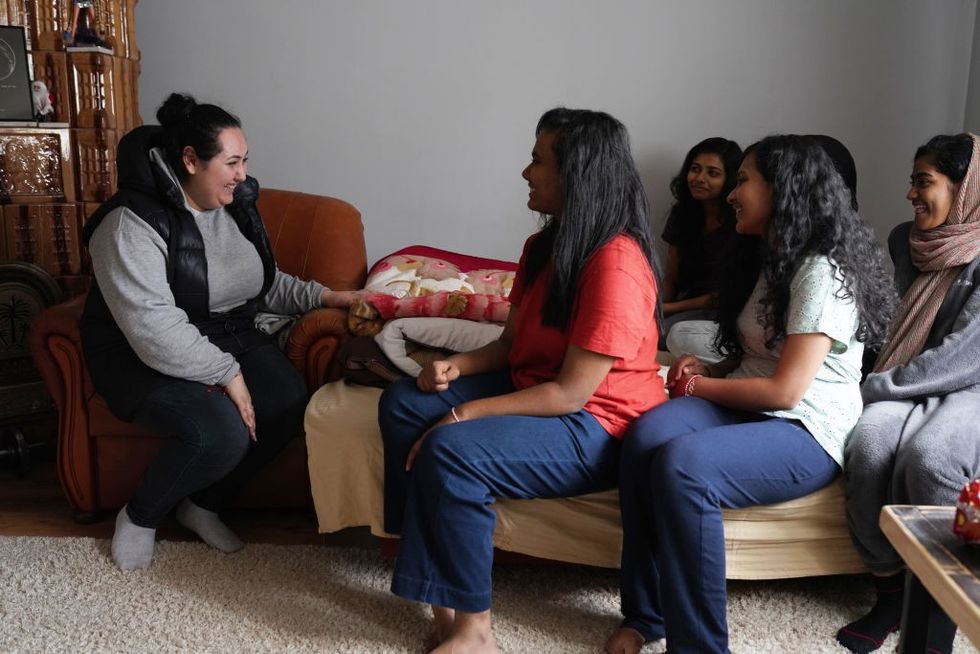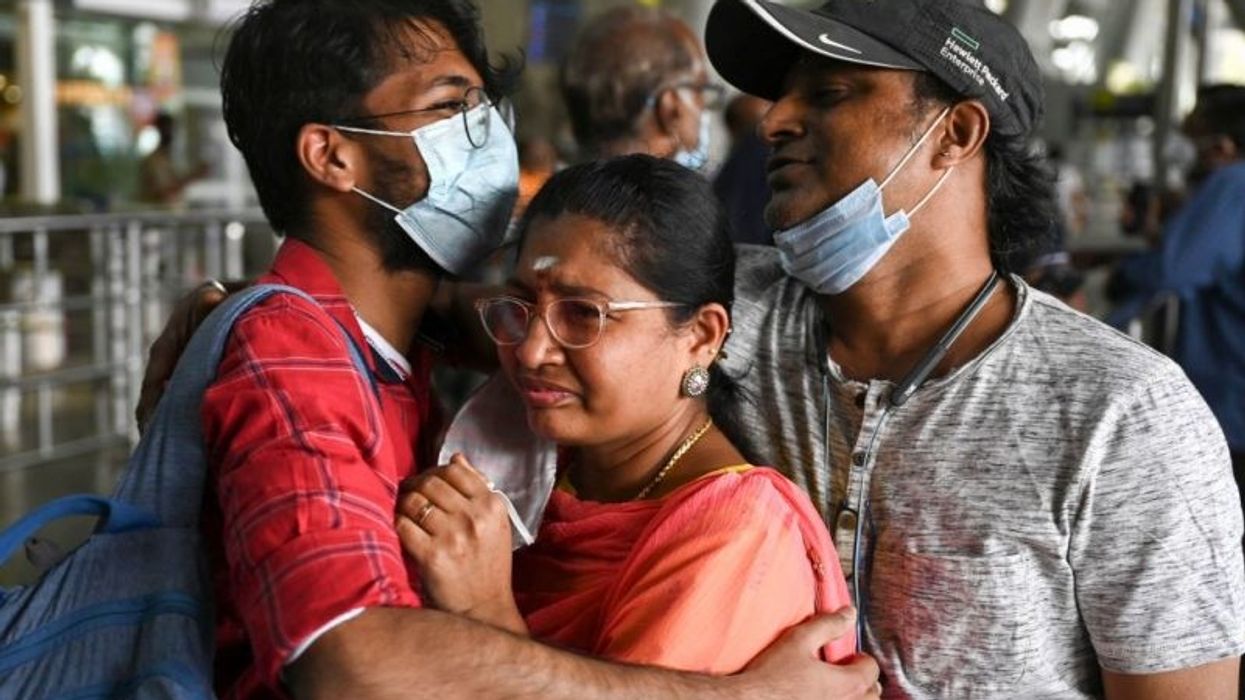RUSSIA has informed the UN security council that buses are ready at crossing points to go to Kharkiv and Sumy in Ukraine to evacuate Indian students and other foreign nationals stranded there.
An emergency UN session was held on Friday (4) following Russia's attack on Ukraine's Zaporizhzhya nuclear power plant, the biggest in Europe.
Russia's permanent representative to the UN, Ambassador Vassily Nebenzia said that the Russian military is doing everything to ensure the peaceful evacuation of foreign nationals stranded in Ukraine.
However, he alleged that Ukraine nationalists were keeping over 3,700 Indian citizens “by force” in Kharkiv and Sumy.
“Terrorists do not let civilians leave cities. This impacts not only Ukrainians but foreigners as well. The number of foreign citizens whom Ukrainian nationals are keeping by force is shocking. Kharkiv – 3,189 nationals of India, up to 2,700 nationals of Vietnam, 202 nationals of China. Sumy – 576 nationals of India, 101 nationals of Ghana, 121 nationals of China,” Nebenzia said.
“In the Belgorod region of Russia, 130 comfortable buses have been waiting (and standing ready) since 6.00 am on Friday at the crossing points ‘Nekhoteevka' and ‘Sudja' ready to go to Kharkiv and Sumy to evacuate the Indian students and other foreign nationals."
The Russian envoy said that the checkpoints are equipped to provide temporary accommodation, space for rest, and hot food. There are also mobile medical stations with a stock of medications.
"Everyone evacuated will then be taken to Belgorod, and from there transported to their homeland by air,” he said.

India's Ministry of External Affairs spokesperson Arindam Bagchi said India has not received any reports of any hostage situation of Indian students.
"We have not received any reports of any hostage situation regarding any student. We have requested the support of the Ukrainian authorities in arranging special trains for taking out students from Kharkiv and neighbouring areas to the western part of the country," Bagchi said.
He said on Friday (4) that around 700 Indians were stranded in Sumy.
India has been coordinating effectively with the countries in the region including Russia, Romania, Poland, Hungary, Slovakia and Moldova. A large number of Indian nationals have been evacuated from Ukraine in the last few days, he noted.
Meanwhile, during the Council meeting, India's permanent representative to the UN, Ambassador T S Tirumurti said: "There is a “pressing humanitarian crisis confronting us in Ukraine, where safety and security of innocent civilians including several thousand Indian nationals, in particular, students are at stake.”
A 21-year-old student at the Kharkiv National Medical University Naveen Shekarappa Gyanagoudar from Karnataka was killed in shelling in Kharkiv city on Tuesday (1) morning.
Ukraine's Permanent Representative to the UN Ambassador Sergiy Kyslytsya told the Russian envoy to “make an appeal to the armed forces (of Russia) to ensure a safe corridor to allow foreign students to leave the areas of concern. Stop spreading the lies! You know very well what is going on there if you are indeed in contact with your capital.”
Nebenzia also accused Western nations of giving protection and patronage to “radicals and extremists” in Ukraine.
India abstained twice in the UN security council on resolutions on Russia's aggression against Ukraine.
'Exploring all possible ways'
The Indian embassy in Ukraine on Saturday (5) said it is exploring all possible ways to safely evacuate nationals from the eastern Ukrainian cities of Sumy and Pisochyn.
The embassy specifically said it is reaching out to 298 Indian students in Pisochyn and buses are en route to evacuate them.
"Control room will continue to be active until all our citizens are evacuated. Please follow all safety instructions and precautions. Be Safe Be Strong," it tweeted.
The mission also said it is in touch with all the interlocutors concerned, including the Red Cross, to identify the exit routes to take out the Indians from Sumy.
According to reports, the number of Indians stuck in Ukraine could be roughly between 2,000 to 3,000.
"We are deeply concerned about Indian students in Sumy. Have strongly pressed Russian and Ukrainian governments through multiple channels for an immediate ceasefire to create a safe corridor for our students," Bagchi said in a tweet on Saturday. "Have advised our students to take safety precautions, stay inside shelters and avoid unnecessary risks."
(PTI)





